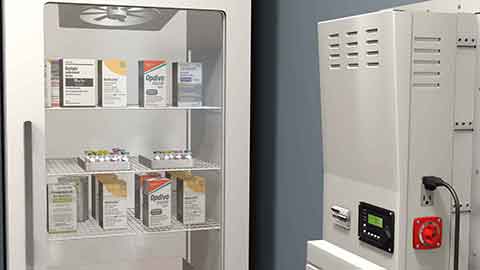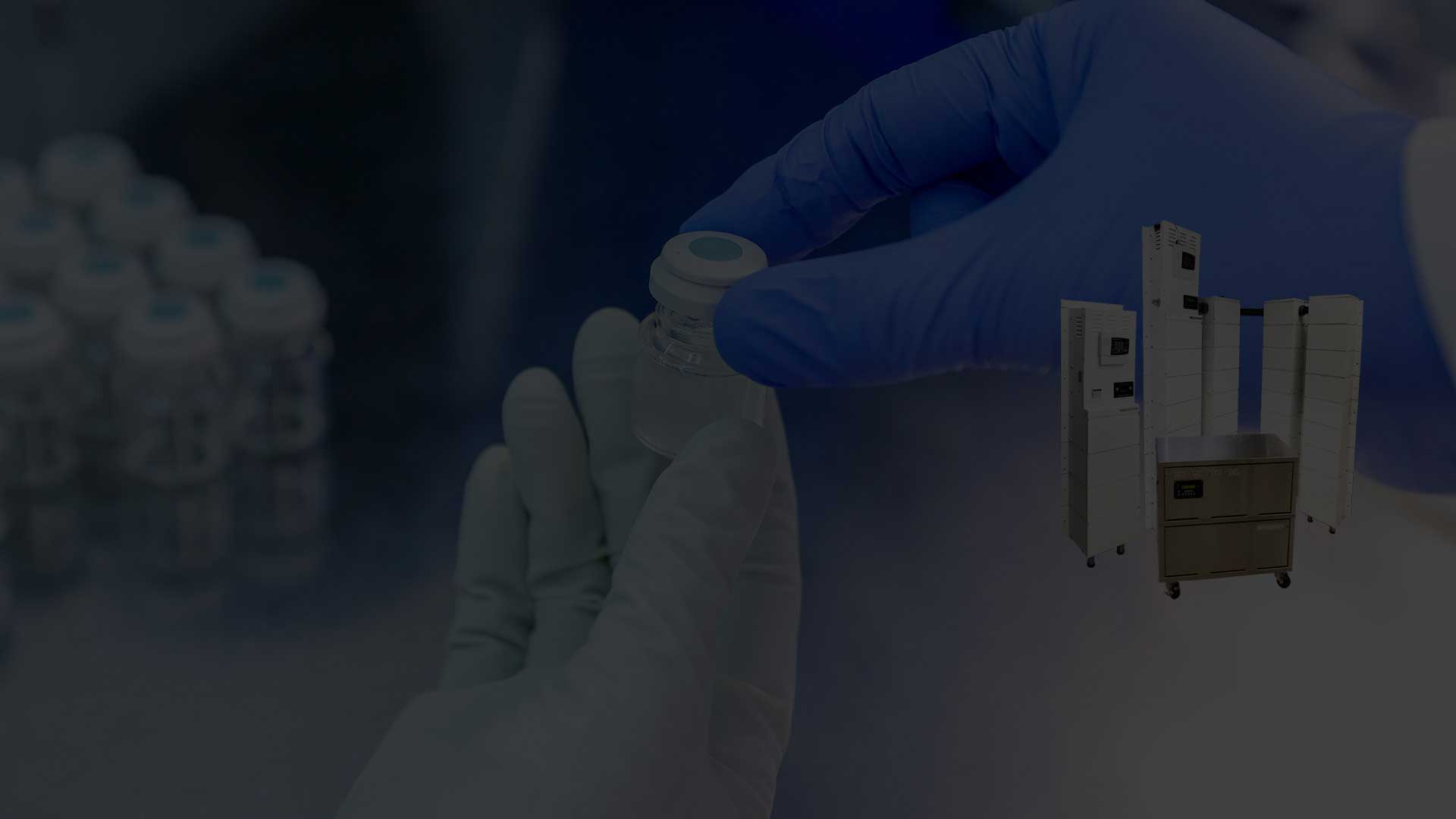The Benefits of Medical Refrigerator Temperature Monitoring
The post-COVID-19 world has placed an important and renewed emphasis on temperature monitoring in medical refrigeration and cold storage settings. With the widespread distribution of vaccines, it's crucial to ensure that they are are transported and stored at the proper temperature to ensure their effectiveness, safety and ensure proper risk management for an organization.
Medical grade refrigerators and medical freezers, naturally, play a critical role in the storage and transport of vaccines. Therefore, they must be monitored closely to ensure that the vaccines are stored at the correct temperature.
This is where temperature monitoring systems come in.
These systems continuously monitor the temperature of the refrigerated environment, ensuring that any temperature fluctuations outside the acceptable range are quickly identified and addressed.
These safety precautions help to prevent the waste of valuable medical supplies, (including pharmaceuticals and specialized equipment) by alerting end-users to any potentially damaging temperature excursions.
Why Is Temperature Monitoring Important in Medical Refrigeration?
Exposure to temperatures outside the recommended range for a given item (whether it’s tissue samples, vaccines or pharmaceuticals) can cause degradation or loss of potency. This results in reduced efficacy and, in some cases, total loss of the entire vaccine, drug or sample. This means severe health risks if patients are exposed and large financial penalties for healthcare providers—plus the added risk of losing accreditation.
Additionally, temperature monitoring helps achieve compliance with the standards crafted by governing bodies such as the World Health Organization (WHO) or the US Centers for Disease Control and Prevention (CDC). The recommendations they make for storage and handling of vaccines and drugs set the standard for cold chain management worldwide. Failure to comply with these guidelines can result in fines, legal action, and a loss of credibility for healthcare providers.
Benefits Of Medical Refrigerator Temperature Monitoring For Healthcare Providers
Continuous Monitoring: Medical refrigerator temperature monitoring systems are designed to monitor the temperature of the refrigerated environment continuously. This helps ensure that the contents are kept at the correct temperature and provides a real-time record of temperature changes.
Alarms: Many temperature monitoring systems are equipped with alarms that will sound if the temperature falls outside the acceptable range. This helps to alert users to any potential problems and ensures that corrective action is taken quickly.
Digital Data Logger: Some temperature monitoring systems are equipped with data logging capabilities, which allow for creating a record of temperature changes. This can be useful for quality control purposes, as well as for tracking the performance of the refrigerator over time.
Remote Access: Some temperature monitoring systems allow for remote access to monitor the temperature of their medical refrigerators from anywhere, using a computer.
Cost Savings: Implementing a temperature monitoring system can help to reduce the costs associated with restocking or replacing spoiled vaccines and drugs. It also helps to minimize the waste of valuable medical supplies, saving healthcare providers money in the long run.
Benefits Of a Medical Refrigerator Temperature Monitoring Device For Drugs And Vaccine Storage
Cancer Treatment drugs: Research has shown that many cancer drugs can lose up to 50% of their potency if exposed to temperatures outside the recommended range for even a short period. According to the National Cancer Institute, cancer drug costs can range from $10,000 to $30,000 per month. Any degradation or loss of potency due to improper storage and handling can result in the need for additional treatments, increasing the overall cost of care.
Insulin: According to the American Diabetes Association, insulin is highly sensitive to temperature and should be stored in a cool place, away from direct sunlight and heat. Studies have shown that exposure to high temperatures can cause insulin to degrade, potentially reducing its effectiveness.
Furthermore, a study published in Diabetes Care found that improper storage and handling of insulin can result in a waste rate of up to 20%.
Blood Samples: Blood products, such as plasma and platelets, are temperature-sensitive and require proper storage and transport to maintain their potency. The American Red Cross has stated that blood products must be stored at specific temperatures to maintain their safety and effectiveness. Platelets, for example, must be stored at a temperature range between 20°C and 24°C, while plasma must be stored between 1°C and 6°C.
Steps for Preventing Temperature Excursions due to Power Outages
While the importance of temperature monitoring cannot be understated, once the power goes out, the clock starts and temperatures begin to rise.
Battery backup systems offer instant and automatic power for both medical equipment and laboratory appliances alike. As a result, no staff needs to be on-site to keep track of or start the generator, plus, valuable samples and inventory will remain safe—with no extra work required.
Additionally, their vertical, cabinet-like design and leak-proof batteries mean they can be installed in even the tightest spaces and oriented in anyway to make them fit. Meaning now matter how crowded your vaccine or sample room is, you can ensure you'll be protected.
Plus, if your lab or storage room is truly tight on space, a hardwired backup power unit can instantly supply remote power to your appliance—directly via the outlet its already plugged into.
Regardless of what kind of system is the best fit, they ensure that your entire stock of biomedical and chemical samples are protected from a sudden loss of power (and the resulting temperature fluctuations) by guaranteeing a seamless transition from utility power to backup power.
Even better, is that battery generators can be outfitted with as much power as you want. So system’s can be designed with enough power to protect a facility’s inventory:
- Overnight
- All day
- Over a weekend
- Or even for a whole week.
So, to protect your facility from tens of thousands of dollars in lost inventory speak to a Medi-Products battery backup expert.
They’ll help design you a system that both meets your power needs and will fit inside your facility—for a much lower cost than what your vaccines are worth. So a backup power system pays for itself the first time your power goes out.
Designing a system for you is as easy as taking a picture of your appliance’s nameplate, and a photo of the room where it’s in.
Then, you just email both photos to our Product experts, and we’ll provide you with multiple options for backup power protection.
For more information contact: 1.800.7653237


